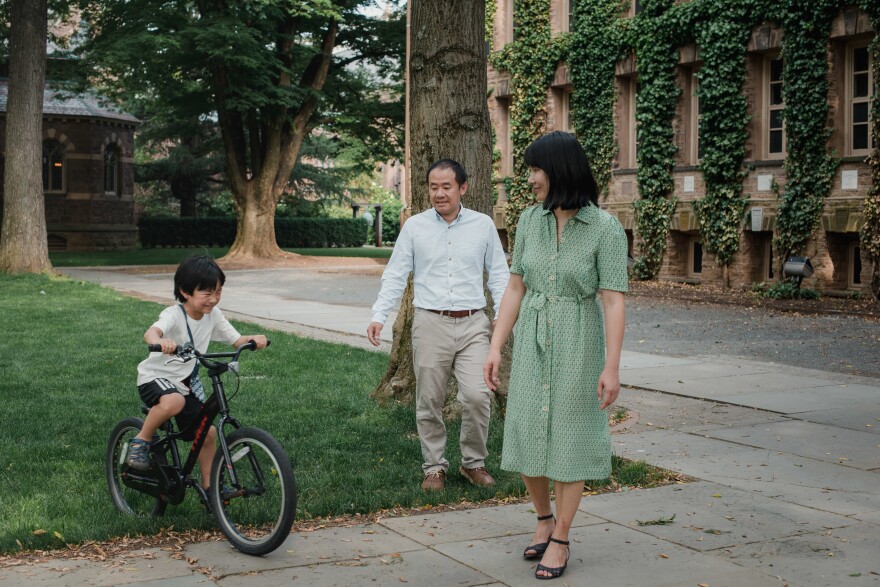Until his release in December, American student Xiyue Wang spent more than three years behind bars in Iran — not because Iranian authorities hoped to glean any information from him, he says, but because they believed he would be useful in their negotiations with the U.S.
Wang, a U.S. citizen and graduate student at Princeton University, was released in a prisoner exchange between the two countries.
He says he had been in Iran for academic research related to his doctorate in Eurasian history, something Princeton — which made behind-the-scenes efforts to secure his release — confirmed.
Iranian authorities sentenced Wang in 2017 to 10 years in prison for espionage.
But the officials who interrogated him over the years didn't seem to care much about what he did or didn't know, according to Wang. He says he was being held for different reasons.

"They told me quite explicitly just that 'we need a deal with America,' " he tells Steve Inskeep of NPR's Morning Edition.
"They were very straightforward about that," he says. "They said, 'We want our money back from the United States. We want our detainees back, and you have to be a spy in order for that to happen.' "
Iranian officials threatened that he would not see his wife and son if he did not confess, he says.
So, he says they ordered him simply to write, in English and Persian, that he was a spy.

"One sentence," he explains: "'I am a spy for the United States.' That's it."
"I was a hostage," he adds. "They made it very clear. They didn't use the word 'hostage,' but from what they described the situation, I was a hostage. 'It's not important what you've done' — they told me, 'We know what you have done — but it is important that you are a spy, so we can make a deal with United States.' "
Wang ultimately spent some 40 months in a prison north of Tehran, during which he says he was tried in court and sentenced without being allowed to see evidence against him.
Now he is back in the U.S., studying and teaching again at Princeton. Diplomats from both countries agreed to swap him with an Iranian scientist, Massoud Soleimani, whom U.S. authorities had accused of violating trade sanctions.

After a struggle to publicize Wang's cause and obtain his release, his wife Hua Qu calls the experience and its safe conclusion "a victory of humanity and diplomacy."
Wang reunited with his wife and son in December in Germany, where U.S. and international authorities managed the exchange.
"That moment, I felt as if time had stopped for us for three-and-a-half years," he remembers. But of course, it hadn't: "My son — he was very different, taller. He was a chubby little boy as a 3-year-old, when I left. Now he's 7."
Wang says he learned an important lesson during his ordeal that he'd like to see other scholars follow — that it's not a "good idea" for U.S. nationals to visit Iran until the relationship between the two countries stabilizes.

But aside from that takeaway, he says he remains confused about what the travail was all for, exactly.
"Of course I was angry. I think that that's to be expected. Who wouldn't be, if a person spends 40 months in prison for nothing?" he says. "But I don't exactly know — and it is to my great interest to find out."
Wang says he hopes one day he will find out what really happened.
Copyright 2021 NPR. To see more, visit https://www.npr.org.



